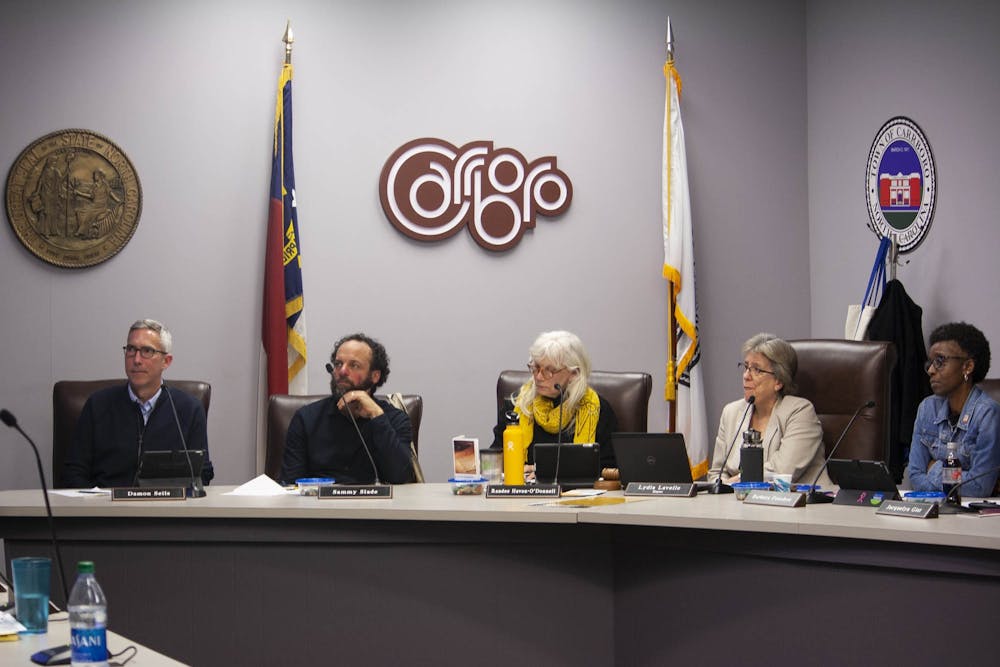CORRECTION: A previous version of this article incorrectly stated that UNC planned to set up tent hospitals in the event of a surge in coronavirus cases on campus. The University has a plan to place tents on campus to support physically distanced outdoor seating space. The story has been updated to reflect the change. The Daily Tar Heel apologizes for the error.
UNC At a July 14 meeting, Carrboro Town Council members expressed concerns about UNC students returning to Orange County following a presentation from UNC's Executive Vice Chancellor and Provost Bob Blouin about the University's reopening plan.
Blouin briefed the council on the University's Roadmap, which he called a “work in progress.” He reiterated some of the University's community standards for the fall, including the requirement for students to wear masks indoors and to maintain a physical distance of 6 feet in all indoor and outdoor settings.
Additional points about reopening Blouin made during his brief include:
- Although UNC was not seeking “priority” with UNC Health Care, Blouin said it was seeking a “relationship” that would provide the University with access to COVID-19 testing. A partnership with the health care system is in its final stages.
- UNC has primarily used Burlington-based LabCorp to perform tests, and the current six- to seven-day turn around time renders tracing “ineffective,” Blouin said. UNC is monitoring increasing scarcity and premium of tests “very closely,” and testing is a top priority.
- UNC is working to develop a data-tracking dashboard, which will show metrics that will inform a transition onto its "off-ramps."
- UNC will share data of positively tested students with Orange County, and Orange County will share that data with students’ counties of origin.
- All staff has received extensive training to prepare for the fall semester, including Carolina Dining Services employees and housekeeping staff. If a University employee were to test positive, Blouin said they would receive paid leave.
- There is a plan to place tents on the University campus, Blouin said. Tents will support physically distanced outdoor seating space that may be used for people to eat outside, as indoor dining space will be limited. In response to a question from council member Randee Haven-O'Donnell about tent hospitalization, Blouin said he was not in a position to speak for UNC Health and their response to a surge in cases.
- To accommodate for reduced capacity on individual buses, Chapel Hill Transit will be increasing the frequency of stops on highly traveled routes for students and staff.
Following Blouin's briefing, Council Member Sammy Slade proposed a resolution that would urge UNC’s administration to move to a “default online” teaching mode, allowing exceptions as necessary, with rigorous policies to ensure students and staff wear face masks and adhere to social distancing guidelines.
In the meeting, Slade said he, along with other community members, felt Orange County is not ready to take on over 30,000 students returning for classes.
“I’m really concerned that essential criteria, such as testing and the threshold data, determining whether students should be coming back to town are not in place yet,” Slade said in the meeting.
In an interview, Slade said some UNC faculty members approached him with the request to create this resolution.




